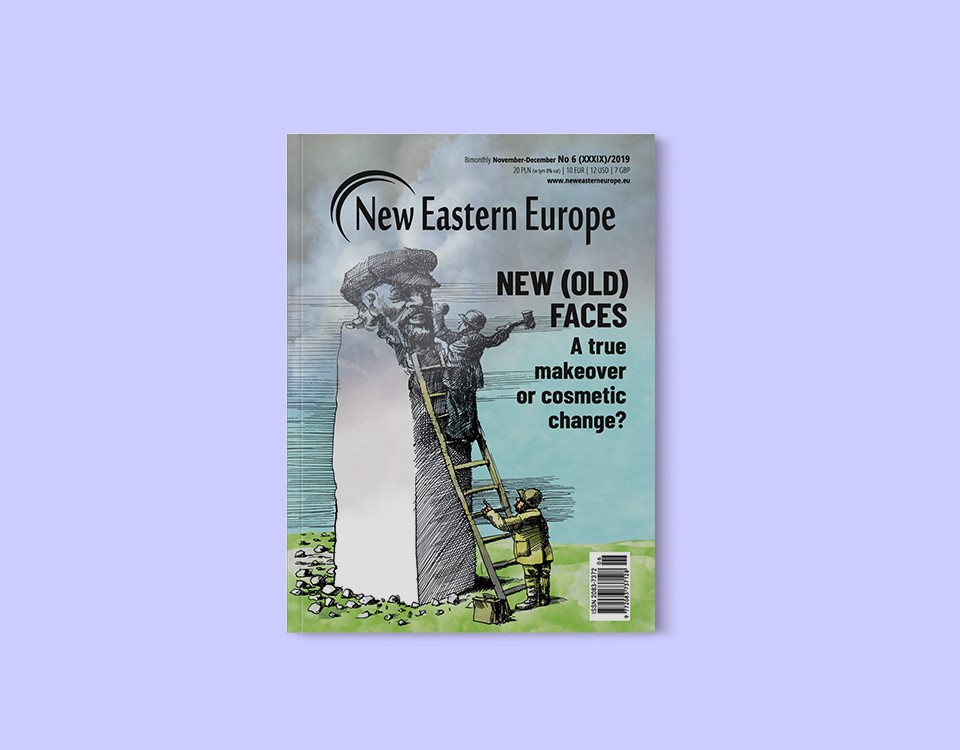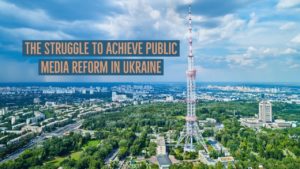 Do new faces in politics in Ukraine, Moldova, Kazakhstan, and Slovakia mean real change, New Eastern Europe asks. ‘Is this part of a wider trend that indicates deeper social transformation’, ask the editors, ‘or is it more of the same, with just an upgraded, modern look?’
Do new faces in politics in Ukraine, Moldova, Kazakhstan, and Slovakia mean real change, New Eastern Europe asks. ‘Is this part of a wider trend that indicates deeper social transformation’, ask the editors, ‘or is it more of the same, with just an upgraded, modern look?’
Ukrainians celebrated the sixth anniversary of the Maidan protests or Orange Revolution that ousted pro-Kremlin President Viktor Yanukovych at the costs of the deaths of around a hundred people. The Maidan protest in Kyiv started on November 21, 2013, after Yanukovych announced he was rejecting a far-ranging political and economic pact with the European Union called an Association Agreement, Radio Free Europe reports.

National Endowment for Democracy
For over 35 years, the Ukrainian American community and its many friends have gathered to pray for and honor the memory of the millions of innocent victims lost in one of the worst tragedies that befell the Ukrainian nation – the Holodomor Genocide of 1932-1933, said Andriy Futey, president of the Ukrainian Congress Committee of America, at the Holodomor commemoration held at St. Patrick’s Cathedral in New York.
 “The Holodomor is but one example of Russia’s ongoing campaign to enslave Ukraine – a nation entitled to its independence and freedom,” he added, on the 86th anniversary of the Famine-Genocide of 1932-1933. “As Russia continues to whitewash its inhumane crimes, including its most recent acts of war against Ukraine, we must uphold the truth. Because truth, and an informed public, are the linchpins of a free society, ensuring that despotism does not triumph over democracy.”
“The Holodomor is but one example of Russia’s ongoing campaign to enslave Ukraine – a nation entitled to its independence and freedom,” he added, on the 86th anniversary of the Famine-Genocide of 1932-1933. “As Russia continues to whitewash its inhumane crimes, including its most recent acts of war against Ukraine, we must uphold the truth. Because truth, and an informed public, are the linchpins of a free society, ensuring that despotism does not triumph over democracy.”
In a new Foreign Affairs essay, Serhii Plokhy and M. E. Sarotte explain why Ukraine’s post–Cold War position between Russia and the West has remained unsettled and insecure, with global consequences that now include a threat to American democracy and power. Read more from Foreign Affairs on Ukraine and U.S. foreign policy:
- “The Demolition of U.S. Diplomacy” by National Endowment for Democracy board member William J. Burns (above).

C-Span
- “Welcome to the U.S. Future—It Looks a Lot Like the Ukrainian Past” by Maksym Eristavi.
- “Why the Ukraine Crisis Is the West’s Fault” by John J. Mearsheimer.
- “Can the West Prevent the Slow Strangulation of Ukraine?” by Peter Dickinson.
- “Breathing Life Into Eastern Ukraine” by Melinda Haring [right, a former Penn Kemble Fellow at the National Endowment for Democracy].







